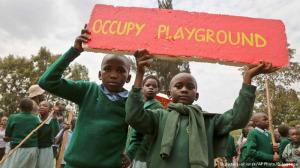By Kyle Herda
Impunity Watch Reporter, Europe
KIEV, Ukraine – Rebel shelling of the Ukrainian city Mariupol has reportedly killed at least 30 and injured over 100. Rebels have been recently increasing number and intensity of attacks, although this appears to have been the peak of the recent attacks.

Ukrainian Prisdent Petro Poroshenko says that Kiev has confirmed the shelling came from Russian-backed separatists. Uragan and Grad rockets that pounded the city came from rebel-held territory within Eastern Ukraine, and Ukrainian Defense Minister Stepan Poltorak said the Ukrainian military has destroyed four of the six Grad systems that were used to carry out the attack on Mariupol. President Poroshenko went as far as to call the attack “a crime against humanity,” and he subsequently sent more military men into the region.
Following the attack, both sides were once again quick to blame the other for escalating the conflict. The truce sworn to by all involved parties in Belarus last year seemingly has lost most of its weight and neither Eastern Ukraine, Western Ukraine, nor Russia is willing to take the blame for the breakdown. Last week, President Poroshenko accused Russia of having 10,000 Russian troops and 500 Russian tanks in Eastern Ukraine aiding the rebels, with as many as 2,000 of those troops and 200 of those tanks having recently entered.
In addition to Mariupol, four Ukrainian servicemen were killed and 17 injured over the past day at the hands of the rebels, and Debaltseve has seen strong rebel fighting. Alexander Zakharchenko, leader of the rebels, says they aim to surround the town. This would come in addition to increased fighting in Donetsk, particularly at the airport where shelling has once again become quite regular and casualties continue to rise. Altogether, the United Nations reports over 5,000 people have been killed in the Ukrainian conflict.
For more information, please see:
Reuters – Rebels launch ‘intense’ attacks on Ukraine government troops: Kiev military – 25 January 2015
ABC – Ukraine Says Calls Prove Rebels Attacked City, Killed 30 – 25 January 2015
BBC – Ukraine conflict: Poroshenko vows to ‘calm’ Mariupol fighting – 25 January 2015
LA Times – 30 killed, 102 injured in missile attack on Ukraine port city – 25 January 2015
The Wall Street Journal – Deadly Rebel Attack in Ukraine Signals Escalation – 25 January 2015
Reuters – Pro-Russian rebels attack key port; Ukraine says at least 30 dead – 24 January 2015
The New York Times – War Is Exploding Anew in Ukraine; Rebels Vow More – 23 January 2015


